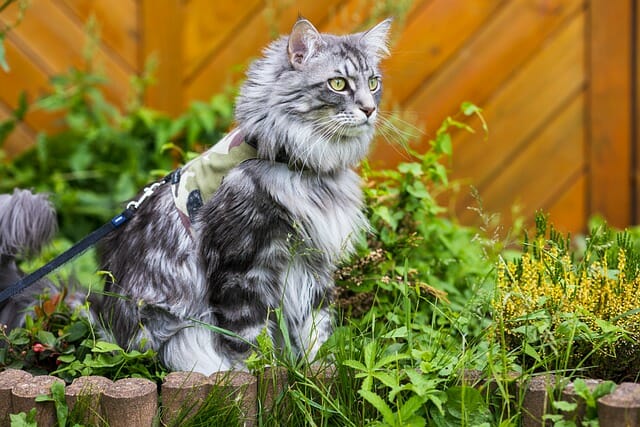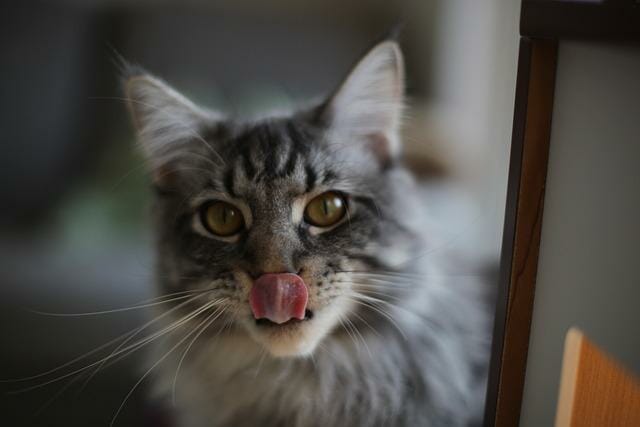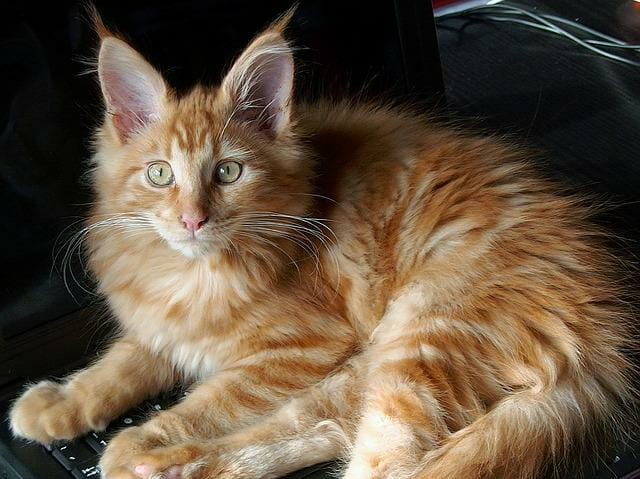Are Maine Coon Cats Good Pets: Pros and Cons of Owning a Maine Coon
Yes, Maine Coon cats can make excellent pets for the right owners. Here are some reasons why:


- Friendly and pleasant: Maine Coon cats are known for their friendly and pleasant personalities. They tend to get along well with people and other animals and enjoy interacting with their owners.
- Gentle giants: Maine Coon cats are one of the largest cat breeds, but they are also known for their gentle nature. They are usually not aggressive and tend to have a laid-back attitude.
- Low-maintenance: Despite their size, Maine Coon cats are relatively low-maintenance pets. They have long, thick coats that require regular brushing but are generally healthy and do not require much special care.
- Intelligent and trainable: Maine Coon cats are smart animals that can be trained to do tricks or walk on a leash. They are also good problem solvers and enjoy playing with puzzle toys.
- Long lifespan: Maine Coon cats have a long lifespan compared to other cat breeds, with some living up to 15 years or more with proper care.
Table of Contents
Pros of Owning a Maine Coon
Unique Appearance
One of the most distinctive features of a Maine Coon cat is its long, fluffy tail. It can be as long as their body and is often held upright, giving them a regal appearance. Maine Coons are one of the largest domestic cat breeds, with males typically weighing between 13-18 pounds and females between 8-12 pounds. Their large size can make them a striking and impressive addition to your household.
Maine Coons have tufts of fur on their ears, which can give them a wild and rugged appearance. This feature is not unique to the Maine Coon breed, but it is still a distinctive and attractive trait.
Maine Coon cats have long, thick, and silky coat that comes in a wide range of colors and patterns, according to WebMD. Their coat requires regular grooming, but maintaining and admiring their beautiful appearance can be a pleasure.
Affectionate
Maine Coon cats are loving and affectionate and are known for their affectionate nature and being loving and devoted to their families. These cats often follow their owners around the house and enjoy cuddling with them on the couch.
Maine Coon cats have above-average intelligence, making them easier to train than other breeds. This breed is also known for being very vocal and playful, often engaging in activities such as playing fetch and walking on a leash. The cat’s coat is long, thick, and water-resistant, making grooming easier. Overall, Maine Coon cats make excellent family pets with their gentle and affectionate nature.
Adaptable
Maine Coon cats are known for being adaptable to various living situations, which is another pro of owning this breed. Maine Coons adapt well to different living situations, such as apartments or larger homes, as long as they receive proper care and attention. They are generally social and friendly cats, and they can get along well with other pets in the household, such as dogs or cats.
Additionally, Maine Coons are known for being patient and tolerant, which can make them good companions for families with children. Maine Coons are intelligent cats and can be trained to perform tricks or respond to commands. This can make them fun and interactive pets to have in the household.
Loyal
Maine Coon cats are known for their loyalty to their owners, which is another pro of owning this breed. They form strong bonds with their owners, follow them around the house, enjoy spending time with them, and can become very attached to them.
Maine Coons are known for their affectionate nature and love to cuddle and snuggle with their owners. They will often seek out their owners for attention and affection. They are also known for being protective of their owners and will often keep an eye on them and may even position themselves between their owners and potential threats.
Low Shedding
Maine Coon cats have thick, dense coats requiring regular grooming, but they are known for being relatively low shedding compared to other long-haired cat breeds. For people with cat allergies, a Maine Coon can be a good choice because they shed less and produce less dander. However, it’s important to note that no cat breed is completely hypoallergenic, and some people may still experience allergy symptoms.


With less shedding comes less hair around the house, which means less cleaning for the cat owner. This can be especially beneficial for people sensitive to dust and allergens.
A low-shedding coat also means less matting and tangling of the fur, which can be a problem for cats with longer hair. This can make grooming easier and less time-consuming. While Maine Coons may shed less than other long-haired breeds, they still have that signature fluffy and adorable appearance that makes them a popular choice for cat lovers.
Not Highly Territorial
While Maine Coons may still mark their territory, they are generally less likely to do so than other breeds. This can make them easier to live with, especially those sensitive to cat urine’s odor.
Maine Coons are generally friendly with strangers and may approach them without showing any signs of aggression. This can make them ideal pets for households with frequent visitors. They are social cats and can get along well with other pets, including dogs and other cats. They may even seek out their companionship and enjoy playing and cuddling with them.
Additionally, Maine Coons are known for their easy-going nature and are generally not easily agitated. They can adapt well to new environments and routine changes, making them great pets for families with busy lifestyles.
Vocal
Maine Coons are highly communicative and use a variety of vocalizations to express themselves. For example, they may meow, chirp, trill, or chatter when they see birds outside. This can make them a great choice for those who enjoy talking to their pets.
Maine Coons may also use vocalizations to show affection to their owners. For example, they may purr or make a chirping noise when happy and content and are also known for their playful nature and may make various vocalizations when playing or growl, hiss, or even yowl to show excitement.
Cons of Owning a Maine Coon
Size
The size of Maine Coon cats, one of their pros for some people, can also be a con for others. They are one of the largest domestic cat breeds, and their size can be intimidating for some people. This can make finding suitable living arrangements or transportation difficult for them. Additionally, their large size means they need plenty of space to move around and play, which may only be feasible for some.
Cost
Maine Coon cats can be expensive, especially if you are looking for a purebred cat with desirable traits. For example, the cost of a Maine Coon kitten can range from a few hundred to several thousand dollars, depending on the breeder, bloodline, and other factors.
Additionally, Maine Coon cats may have higher grooming and feeding costs due to their size and long hair. Their large size also means they may require larger litter boxes, scratching posts, and toys, which can add to the cost of ownership.
High Energy
Maine Coon cats are known for their high energy levels, which can be a pro or a con depending on your lifestyle and preferences. Active cats need plenty of exercise and playtime to stay healthy and happy. This means there may be better choices for people looking for a low-maintenance pet that only requires a little attention.
Maine Coons also tend to be very curious and adventurous, which can lead them into trouble if they are not properly supervised. They may also tend to climb and scratch furniture if they need appropriate outlets for their energy.
Health Issues


Although Maine Coons are generally a healthy breed, they can still be prone to certain health issues like any other breed. Here are some of the potential health problems that Maine Coon owners should be aware of:
- Hip Dysplasia: This genetic condition affects the hip joint, causing it to become loose and unstable, leading to pain and arthritis.
- Hypertrophic Cardiomyopathy (HCM): This heart condition causes the heart muscle to thicken, making it difficult for the heart to function properly.
- Spinal Muscular Atrophy: This genetic disorder affects the nerves that control the spine’s muscles, leading to weakness and muscle wasting.
- Polycystic Kidney Disease (PKD): This genetic disorder causes cysts to form in the kidneys, which can lead to kidney failure.
- Obesity: Maine Coons are prone to obesity, leading to other health issues such as diabetes, joint problems, and heart disease.
